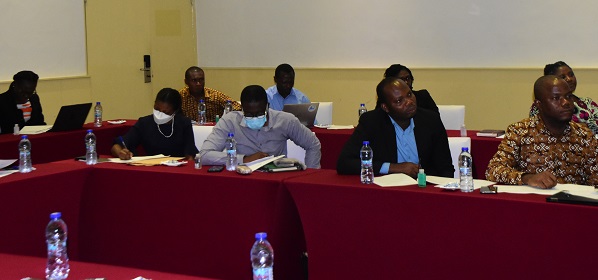
The current urban food system cannot guarantee food safety for consumers, Prof. Felix Ankomah Asante, Pro Vice-Chancellor, Research, Innovation and Innovation, University of Ghana, has said.
According to him, there is a disconnection between food safety knowledge and behaviour of actors in the food sector.

He said this in Accra yesterday, during a workshop on health diets and nutrition in urban African food systems-evidence and strategies (NOURICITY).
The programme was organised by The Institute of Statistical, Social and Economic Research (ISSER), University of Ghana, Legon, in collaboration with the Centre for Development Research (ZEF), University of Bonn, Germany.
The overall aim of the study was to understand the food consumption choices of the urban population in cities, and how these choices impact its nutrition from both the individual and systemic perspectives.
Prof.Asante said key findings from NOURICITY project revealed some of the fresh food products in the main markets in Accra, Kumasi and Tamale were not hygienically handled.
He said vegetables and fruits and other products were sold in the open, eitheron the floor, which exposed them to microbial infections.
“Most of the food items we buy have been exposed to infections, tomatoes for instance, whether crashed or near rotten have been exposed therefore not good for consumption but these are what we see on the markets, we buy them because we think they are affordable but at the end we end up complicating our health issues,” he said.
Prof. Asante said proper measures and the enabling environment must be put in place to check and correct such behaviours.
He mentioned cleanliness, waste collection, certification and training, market storage as some of the challenges facing food security.
He said providing training on food safety issues, such as awareness campaign and regular visits to the markets by authorities could improve food safety knowledge.
Prof. Asante said mandates of state institutions in the food sector could be further streamlined to promote collaboration to promote efficiency in monitoring, supervision and enforcing guidelines.
Dr Nicolas Gerber, from institute for Food and Resource Economics, University of Bonn, said test results from the market survey indicated that Aflatoxins were detected in all maize and groundnut samples.
However, he said the limit beyond which actions should be taken by authorities, (20ng/mL) was reached four times (out of 24): from truck and retailers for maize and groundnut.
With regards to microbiological test results, he said total coliforms were detected in most samples for all products and all stages but no salmonella was enumerated from cabbage, tomatoes, and maize or groundnut samples collected from trucks, wholesalers and retailers.
Dr Gerber said during the research, it was noticed that majority of traders were aware of their actions in relation to food security but behavioural change was an issue.
BY AGNES OPOKU SARPONG






